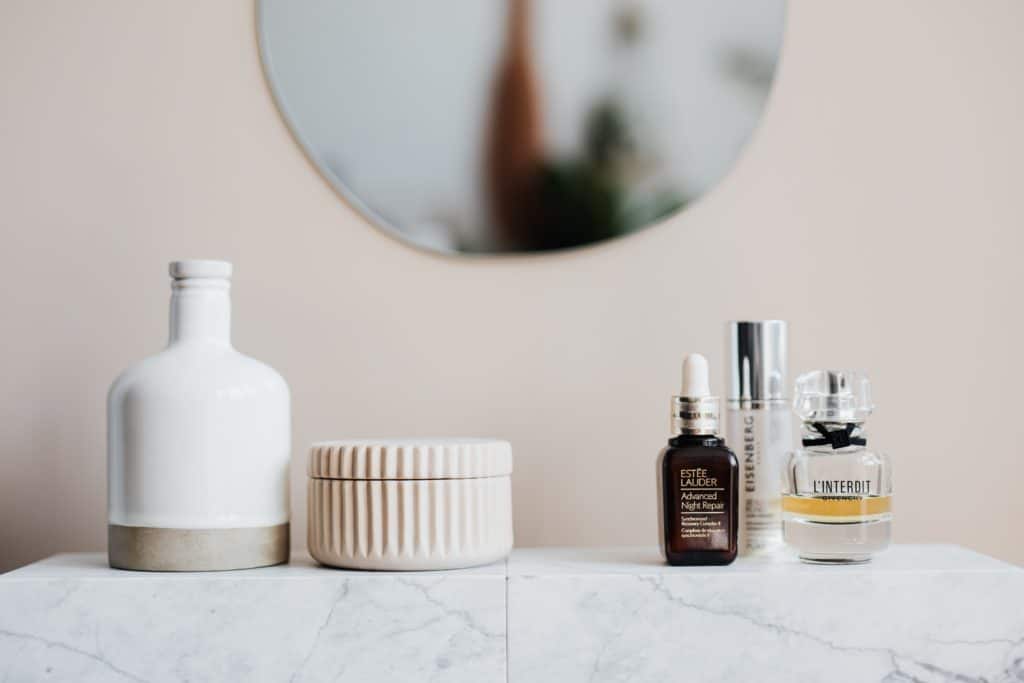The demand for organic cosmetics products such as skin care by brands like Weleda continues to grow and the international natural beauty market is expected to reach $48 billion by 2025 - an increase of 5.01% between 2019 and 2025, according to a recent report published by Grand View Research.
Weleda, a pioneer brand of organic skin care since 1921, occupies a large space in this market not only because of its heritage but also its popularity with celebrities. The Swiss brand has gradually become the favorite product of celebrities such as Victoria Beckham, Julia Roberts, Adele, and Rihanna. These famous names regularly praise Skin Food by Weleda as their favorite beauty product for free. In order to understand the unique impact celebrities have on the organic beauty sector, we have evaluated the value brought to Weleda by mentions made by celebrities.
To do this, we studied the mentions of Weleda in the online press and on social networks by the 4 four ladies listed above between January 1 and April 30, 2020.
Weleda: The Impact of Spontaneous Celebrity Praise
In order to quantify the impact of mentions as part of an influencer or celebrity campaign, the exchange between the brand and the influencer or the celebrity is decided, planned, and in most cases paid. The initiative generally comes from the brand who will seek influencers or celebrities that embody their value. However, how do you quantify the ROI from a mention via a celebrity which is unplanned or unpaid?
According to our last report on The State of Influencer Marketing 2020, 25% of professionals consider their main challenge is measuring results when running influencer marketing programs. If it is already difficult to assess the impact of an action when initiated by a brand, evaluating the value of an unplanned ( and unpaid) mention is even more complex for all parties involved - brands, PR agencies, celebrities’ agents. Victoria Beckham, when asked for her beauty tips and tricks, quoted Weleda skin care products in her interview published in Elle France. "It's my secret to the body. I love this product because it can be found everywhere and the price is reasonable,”. This quote alone generated €651K in MIV® for the brand, a nice surprise for PR and marketing teams, and surely a call to think about how the future strategic partnership with the designer might look like.
Victoria Beckham generated €651K€ in MIV® for Weleda, from one mention
Media Impact Value™ is our proprietary algorithm that enables brands to allocate and measure the impact of such partnerships and any other marketing activities in monetary terms. Thanks to this algorithm, we can quantify the impact of Celebrity Voices such as Victoria Beckham’s mention of Weleda in print, online media, and social networks. Among the four analyzed celebrities, the British designer is by far the one whose Voice had the biggest Share of Value according to data. She is followed by the actress Julia Roberts who helped generate €234K in MIV® for the Swiss beauty brand mentioning Skin Food body cream.
The singer Adele, meanwhile, mentioned the brand 17 times in the press in the past four months including 16 times directly talking about Skin Food body cream and accumulating €110K in MIV® accordingly.
76% of mentions by Rihanna about Weleda skin care also relate to the same Weleda’ evergreen product. Adele helped generate €30K in MIV® for Weleda with a single Daily Mail article mentioning the singer’s beauty routine and use of Skin Food Body cream.
Weleda's popularity is part of the emerging consumer trend towards organic natural beauty.
Until recent years, 'green' cosmetics could only be purchased in specialty supermarkets, such as Whole Foods, or Reformhaus in Europe. Lately, there has been a significant change, and organic beauty products have now become available to the masses - commonplace in the product ranges of retailers such as Douglas, Tesco, Target, and CVS.
The mail-order chain, Nordstrom, launched its own natural cosmetics range in 2017, with brands that include Herbivore Botanicals and Tata Harper. Specialist retailers, such as Sephora and Bluemercury, also expanded their product ranges with brands that include Indie Lee and One Love Organics.
Dr. Hauschka, a brand well known for its organic care products, claims its place in the mass market by sponsoring and supporting events such as fashion weeks, press days and festivals, and executing an “outside of the box” marketing program. In the summer of 2019, the company took its own Airstream Trailer on tour. The traditional campervan was filled with effective cosmetics and nourishing make-up and set off to visit summer festivals, art exhibitions, and fashion fairs all over Europe – in Milan, Copenhagen, Hamburg, Berlin, and Vienna, to name a few cities.
Buying ethical goods is now cooler than ever been before, particularly as environmental awareness is becoming mainstream in the Millennial and Generation Z markets. It remains intriguing to see how brands will respond, and how the new powerful Voices of influencers, celebrities and stars will form the new perception of organic beauty.
If you would like more information on how to optimize your budget and improve your overall brand performance, please click here.

